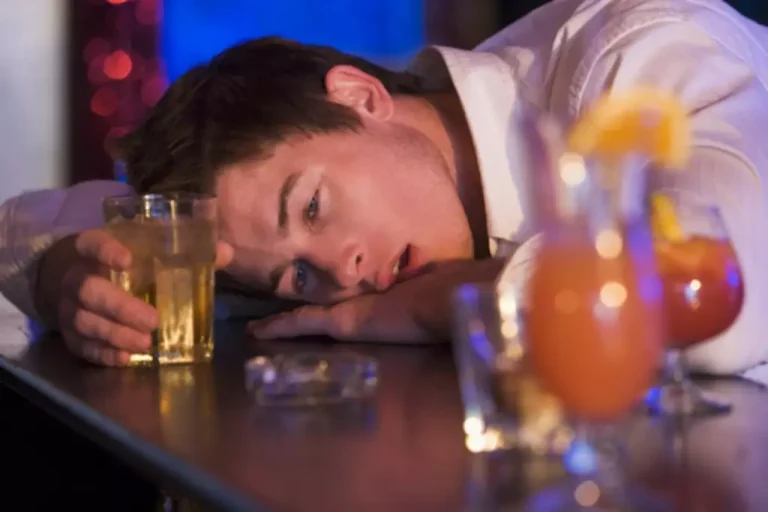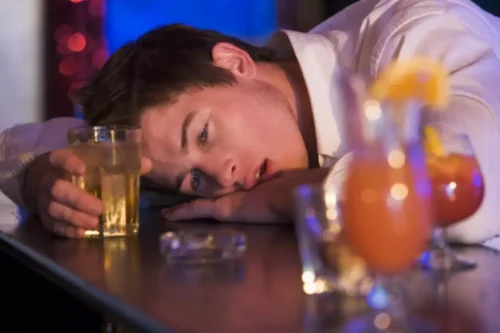Alcohol Withdrawal Symptoms, Detox, Timeline, & Treatment

A day and a half after quitting alcohol, withdrawal symptoms will intensify. New symptoms will develop, including clammy skin, nausea, jumpiness, insomnia, depression and loss of appetite. As new symptoms develop, they will become more and more intense as withdrawal progresses. In theory, a person could very gradually and methodically reduce their alcohol use over time in a way that allows the brain to slowly adjust to the decreased activity, but this rarely works in practice. Lack of control over alcohol intake is a common symptom of alcoholism. Addiction, tolerance and physical dependence encourage people to drink more alcohol over time, not less.
- The symptoms can range in severity and may include nausea, vomiting, and mood changes.
- It is the first step in the process of alcohol addiction recovery and the therapeutic interventions include medication and psychotherapy.
- Though people may be looking for a quick and easy alcohol detox without the distress and discomfort of alcohol withdrawal, there is no proven method that prevents symptoms.
- For help quitting, resources are available from the Substance Abuse and Mental Health Services Administration (SAMHSA) or the National Institute on Alcohol Abuse and Alcoholism (NIAAA).
- If you suddenly stop drinking or significantly reduce the amount of alcohol you drink, it can cause AWS.
Common Questions About Alcohol Withdrawal
« Most symptoms are gone except constipation and occasional shakes. Been sleeping really good. » « Today, I went to the grocery store, and I cannot believe how clear everything is getting. It’s amazing https://ecosoberhouse.com/ how foggy life was. » « I feel good today but was very irritable last night. My clothes are fitting better, and my face isn’t as puffy. »
Alcohol Withdrawal Timeline: What Happens to Your Body When You Quit Alcohol?

At The Recovery Village, we monitor patients 24/7 to ensure their discomfort during withdrawal is managed, their vitals are at healthy levels and they are not experiencing any life-threatening symptoms. If your symptoms persist for a long time, you may have post-acute withdrawal syndrome (PAWS). This protracted withdrawal can lead to lingering withdrawal symptoms such as irritability, sleep disruptions, problems concentrating, and urges to use alcohol. If you experience PAWS, your doctor may prescribe gabapentin to help you manage your symptoms. If physical symptoms continue after 11 days of abstinence, seek medical attention. Those persistent symptoms might have some other cause than alcohol withdrawal.

Getting Help for Alcohol Withdrawal
Outpatient detox is ideal for people who are not likely to experience severe detox symptoms. « I needed professional help, as I had severe withdrawal symptoms of a DT nature with hallucinations, a possible seizure, and fear I would fall over dead any second. I went to the ER and detoxed five days in the hospital. » Those who experience the most severe withdrawal symptoms, such as hallucinations and seizures, don’t begin to have those symptoms until days four or five. Seizures can occur within 6 to 48 hours, while hallucinations can occur within 12 to 48 hours after drinking is reduced or stopped, says Dr. Nolan.

Because the body usually works to maintain balance, it will signal the brain to make more neurotransmitter receptors that excite or stimulate the central nervous system. They may also do a blood test called a toxicology screen to measure the amount of alcohol in a person’s system. Blood tests and imaging tests can show if organs, such as the liver, have been affected by a person’s intake of alcohol. The doctor may ask for evidence that there has been a decrease in alcohol use after regular heavy use.
How long does alcohol withdrawal last?
Although the effects are somewhat predictable, there is no way to know with certainty which symptoms will emerge and how intense they will become for each person. In the fourth week of abstinence from alcohol, the benefits keep piling up, according to the reports of those who remained sober for more than three weeks. « I’m very irritated at times. I feel really good about my choice to quit drinking. I have headaches often and I have weird and bad dreams. Every night I dream that I’m having a drink again. »
You will probably be well out of withdrawal and mostly recovered from the ordeal. By this point, you will have had about 6,000 fewer calories than you would have previously during a two-week period. Saving the money you would have spent on alcohol will provide you $300–$400 or more by this second week. New benefits will also become noticeable as you put withdrawal behind you. “Update on the neurobiology of alcohol withdrawal seizures.” Epilepsy currents, 2005.
- There are many benefits to giving up alcohol, both short-term and long-term.
- In extreme cases, the brain can have problems regulating breathing and circulation.
- You must remove all alcohol cues from the living environment and avoid enabling behaviors like providing them with financial assistance that they are likely to divert to procure alcohol.
- This is because alcohol can cause dehydration, which can lead to dry, dull skin.
- According to Hilary S. Connery, MD, PhD, the clinical director of the division of alcohol, drugs, and addiction at McLean Hospital in Boston, withdrawal medications are suitable for most people.
- Delirium tremens can last up to 5 days, with a mortality rate of up to 37%.
Alcohol withdrawal treatments
- There are many support options available that can help guide you through alcohol withdrawal, as well as abstaining from alcohol after withdrawal.
- Those who experience the most severe withdrawal symptoms, such as hallucinations and seizures, don’t begin to have those symptoms until days four or five.
- By the first week after stopping alcohol, you will be more hydrated.
- The decision to quit drinking is an important step, but you might wonder what can you expect from alcohol withdrawal.
- So, giving up alcohol can help you to avoid these potentially deadly diseases.
Primary care physicians should offer to initiate appropriate medications. When you constantly have some alcohol in your bloodstream, you will not think as clearly. Many people who use alcohol heavily for a prolonged period often don’t even recognize the perpetual fog that alcohol creates. When you stop drinking, it can feel like entering a whole new world and like a fog that you didn’t even know was there has suddenly lifted.

Another benefit of alcohol detox giving up alcohol is that your mind may be clearer. This is because alcohol can cause changes in brain chemistry, which can lead to cognitive problems. If you struggle to sleep, talk to your doctor about solutions that might help.
